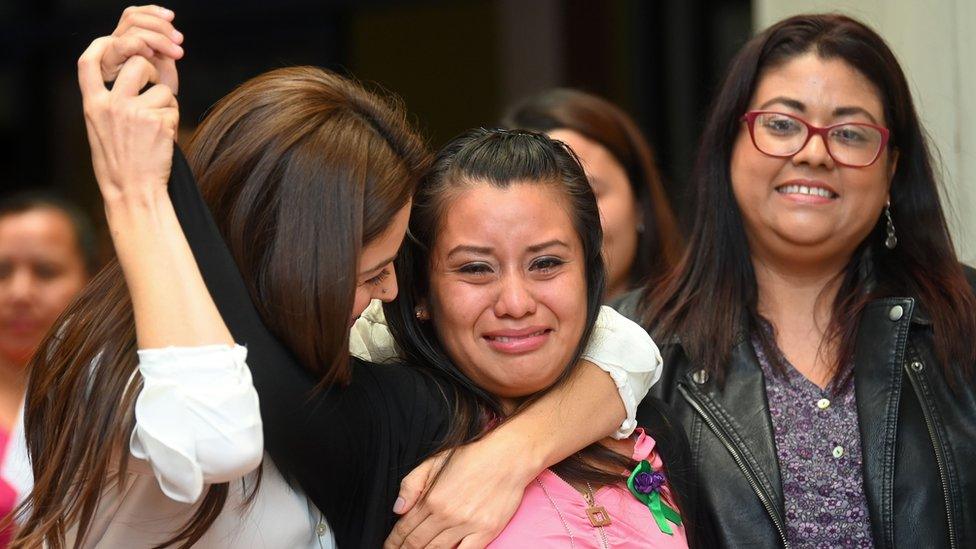El Salvador woman freed after abortion conviction
- Published
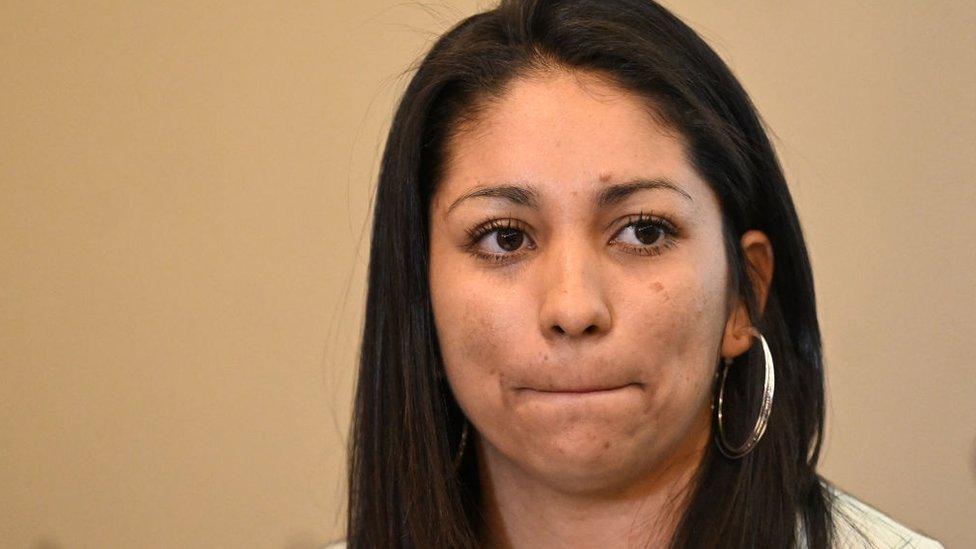
Lilian's baby girl died under the care of doctors, but she was prosecuted for neglect and murder
A Salvadoran woman has been freed from prison more than seven years after she was convicted for having an abortion.
The 28-year-old, identified only as Lilian, was sentenced to 30 years in prison in 2015.
She gave birth to a girl in a public hospital in 2015, but the baby suffered health complications and died there three days later.
There is a total ban on abortion in El Salvador, which has one of the world's strictest anti-abortion laws.
Prosecutors had accused Lilian of not taking care of the foetus during her pregnancy, and she was charged with negligence and aggravated murder.
Lilian, who has a 10-year-old daughter, has always maintained her innocence, and said she never intended to terminate her pregnancy.
"In the name of all my companions, I ask you to stop accusing and prosecuting other innocent women like me," she said in a news conference on Wednesday.
"It was a very hard trauma to live through and I don't wish it on anyone."
Campaign groups who supported Lilian during her ordeal said she was freed in December, but the information has only now been made public.
They said the judge's decision to release Lilian was based on the fact that she was in a vulnerable situation in hospital when she lost her baby.
El Salvador's total ban on abortions was introduced in 1998. It does not include exemptions in cases of rape or when the pregnancy poses a health risk for the mother.
Those found guilty of terminating their pregnancy face between two and eight years in prison. But in many cases the charge is changed to aggravated homicide, which carries a minimum sentence of 30 years.
Dozens of women are believed to have been wrongly imprisoned in El Salvador under suspicion of having had an abortion.
Following campaigns by rights groups, a number of women who were convicted have been released in recent years. But some still remain in prison and are serving decades-long sentences.
"We insist that we are asking for justice, so women have access to our sexual and reproductive rights," Mariana Moisa, from civil rights group Nos Faltan Las 17 (We Miss The 17), said at Wednesday's news conference.
President Nayib Bukele, who is widely expected to be re-elected next month, says he intends to improve conditions in hospitals to make childbirth safer.
But he has stressed that he has no intention of changing El Salvador's current abortion law.
Most of the country's population is either Roman Catholic or Evangelical, who say that life begins at conception and must be protected at all costs.
Women across Latin America march for abortion rights
Related topics
- Published28 June 2022
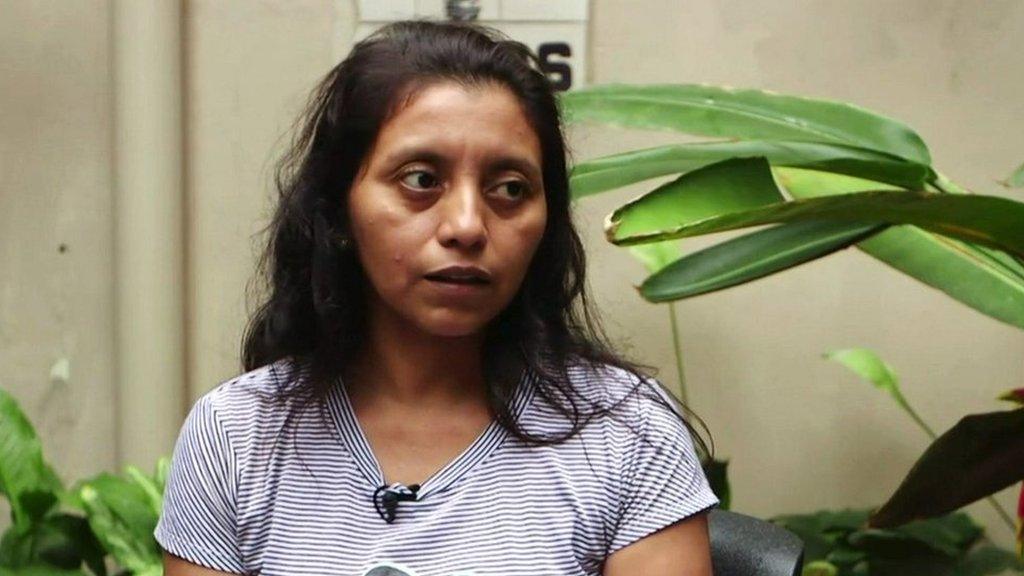
- Published7 March 2022
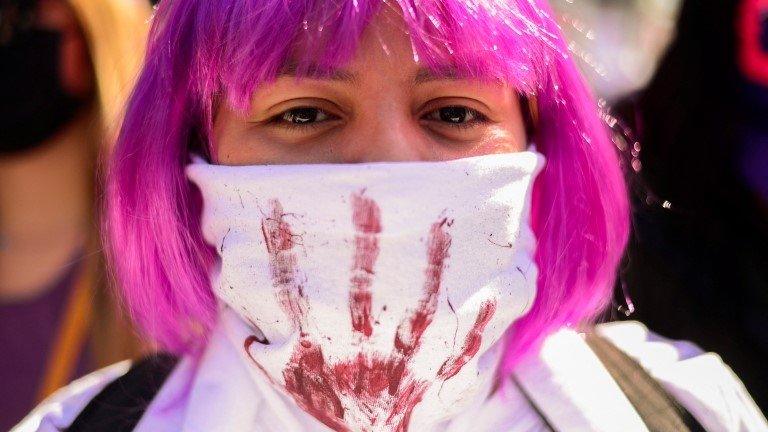
- Published30 June 2022
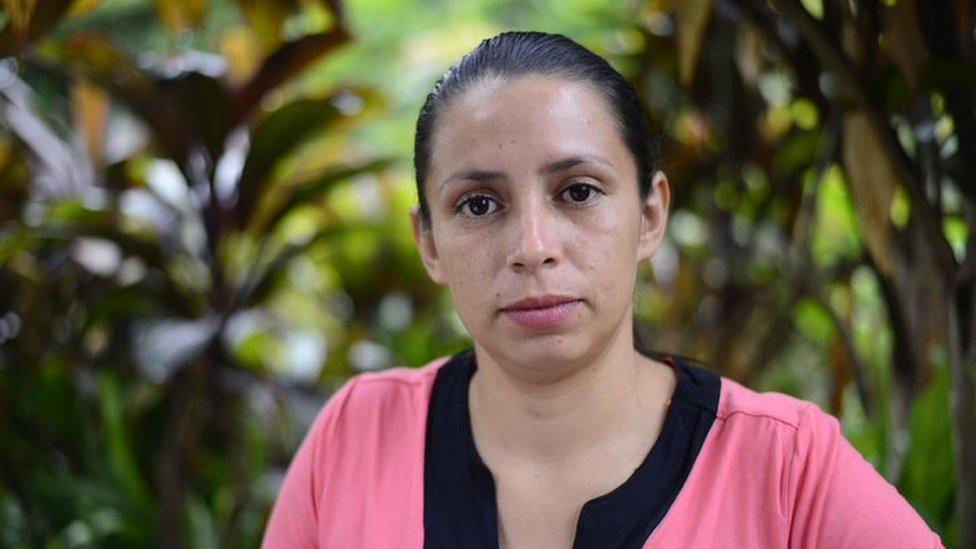
- Published18 October 2013
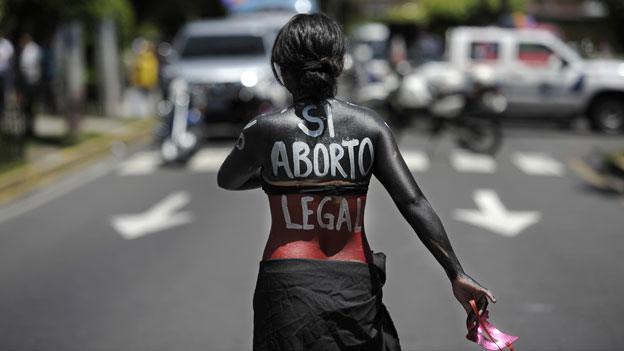
- Published20 August 2019
